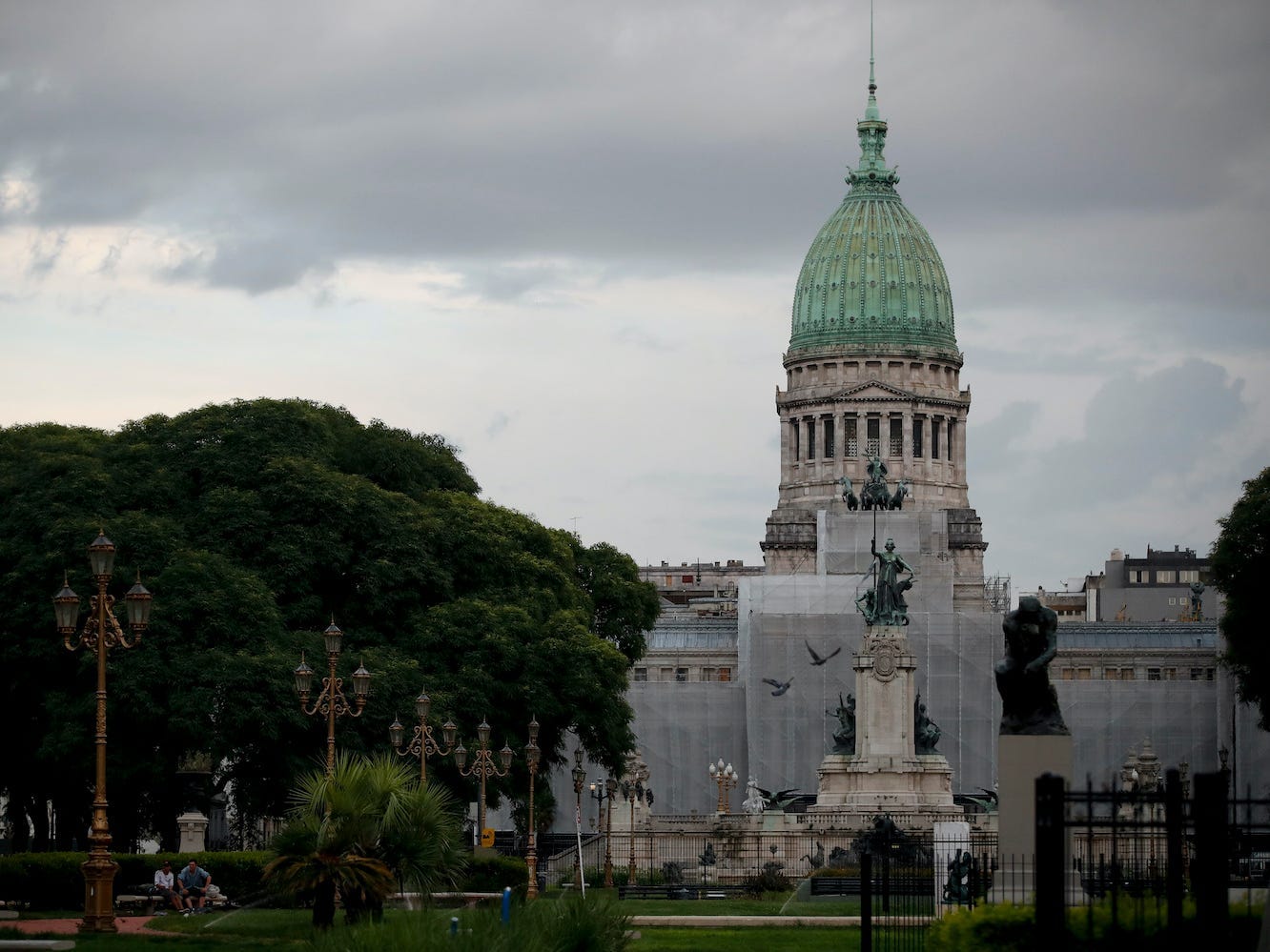
Natacha Pisarenko/AP
- Argentina’s Congress has approved a wealth tax on the top 0.8% of earners.
- The government hopes to collect $3.78 billion from the one-off levy, according to international press agency Pressenza.
- The money raised will go towards the equipment and supplies needed to fight COVID-19.
- It will also be used to support working-class neighborhoods, students, small businesses, and the natural gas sector.
- Argentina has been in a recession for almost three years and has accumulated massive debt.
- Visit Business Insider’s homepage for more stories.
Argentina’s Congress has approved a one-off levy on the super-rich in a bid to cover the costs of the coronavirus pandemic.
The vote passed by 42 to 26 votes late on Friday night.
Officially called the ‘Law on the Solidarity and Extraordinary Contribution of Great Fortunes,’ it has been nicknamed the ‘millionaire’s tax’ by Argentine media.
The wealth tax will be paid by those who have assets worth over 200 million ($2.5 million). Only the top 0.8% of the population- about 12,000 people – will be affected, according to the BBC.
Argentina’s government is hoping to collect about $3.3 billion from the taxes, reports international press agency Pressenza
The money raised will go to a variety of causes. A significant proportion will go towards helping the country in its fight against COVID-19.
Medical supplies and equipment will be covered by the new tax, with 20% of its revenues. Another 20% will go towards economic relief for small and medium-sized businesses, according to the AFP news agency.
The pandemic has badly hit Argentina. It is the eighth-worst affected country in the world in terms of deaths per million people. To this date, almost 40,000 have died in the Soth American nation of 44 million.
The economy is also struggling. The country is facing its third year of economic recession and is wracked with massive amounts of debt. At the end of 2019, Argentina owed $323 billion.
The pandemic has significantly worsened the situation. Nearly half of the population - 47% - are living in poverty, according to research by the Catholic University of Argentina.
To help address this, the taxes raised will also go towards developing working-class neighborhoods, covering student scholarships, and the natural gas sector, AFP reports.
While the tax was passed through congress with a comfortable margin, it has faced fierce opposition from those across the political aisle.
It was reportedly called 'confiscatory' by center-right coalition party Juntos por el Cambio.
